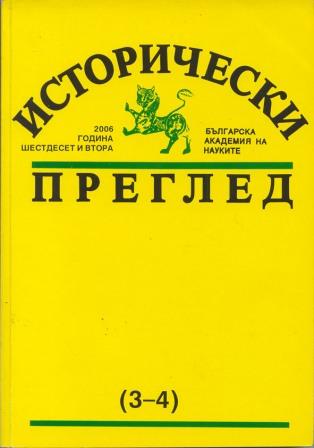Можехме ли да девалвираме лева? Какво се крие зад ортодоксалния български отговор на Голямата депресия
Could Have We Devaluated the Bulgarian Lev? What Is Hidden behind the Orthodox Bulgarian Answer to the Great Depresion?
Author(s): Martin IvanovSubject(s): History
Published by: Институт за исторически изследвания - Българска академия на науките
Summary/Abstract: It is generally accepted fact nowadays that the stubborn protection of the national currency was among the main reasons for the severity and duration of the Great Depression. This ‘striking degree of consensus’, as Barry Eichengreen has put it (1992: 213), suggests that an early devaluation was the better option leading to steep economic recovery. Nearly 25 years ago Borchard (1979, 1984) challenged the conventional wisdom arguing that the credit constrained German economy had no alternative option but the painful deflation. Despite the attracted criticism (for example Holtfrerich 1990) today Borchard’s hypothesis seems to create a growing consensus (Ritschl 1998). In following article I will try to disclose the existing political constraints, which restricted Bulgarian decision makers in abandoning the gold parity. Ever since World War I Sofia enjoyed a limited financial sovereignty further reduced with the two League of Nation loans in 1926 and 1928. Bulgarian ‘choice’ was dictated by the League’s Financial Committee (FC) and the two creditors’ associations based in London and Paris. The medicine prescribed in Geneva for the sick Bulgarian economy included only fiscal austerity and full commitment to the gold standard. Experiencing for more than a decade the ‘new postbellum realities’ Bulgaria did not even considered the possibility of changing her currency regime. As the Prime Minister Nicola Mushanov had put it openly in the parliament ‘we are too weak to solve alone, with our own Dutch courage, the [economic] problems’. It was not that much the possible reprisals, which troubled Bulgarian government. Since 1920 the cooperation and consensual approach in the relations with the WW1 victors became a corner stone of Bulgarian external and internal policy. It was the first among defeated countries to join the League of Nations and has put enormous efforts to improve its relations, however, without much of a success, with Entente powers. The ‘honest debt payer’ formula, repeated so many times by the PM Mushanov, was an integral part of that reconciliation policy. Debt repudiation would have questioned this key policy dogma and might result into a deeper economic and political isolation. The classic reputation models have posited the existence of default penalty ‘usually interpreted as the cost of inferior access to international capital markets’ (Eichengreen 1989: 149). However, Bulgarian interwar experience shows that it was not the future access to new credit determining her choice. Sofia was more concerned with her political reputation in postwar Europe as well as the channels to the Allied powers and their Balkan clients. My hypothesis is consistent with both the Bulow- Rogoff (1989) challenge to the traditional explanation and with Cole-Kehoe’s adaptation of the reputation model (1998)...
Journal: Исторически преглед
- Issue Year: 2005
- Issue No: 3-4
- Page Range: 60-80
- Page Count: 21
- Language: Bulgarian
- Content File-PDF

